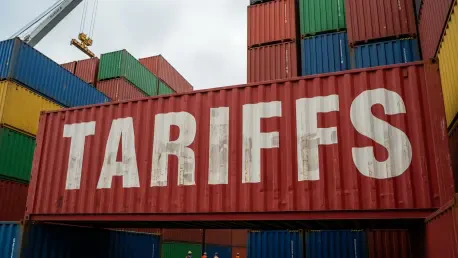Today, we’re diving into a critical Supreme Court case with Rohit Laila, a veteran of the logistics industry with decades of experience in supply chain and delivery. His expertise in navigating complex economic policies and passion for innovation make him the perfect guide to unpack the contentious issue of President Trump’s tariffs under the International Emergency Economic Powers Act (IEEPA). In this interview, we explore the legal challenges to these tariffs, their impact on American businesses, the constitutional questions at play, and the broader implications for economic policy and trade. Let’s get started.
Can you walk us through the core issue of this Supreme Court case regarding Trump’s tariffs?
At the heart of this case is whether the President can use the IEEPA to impose widespread tariffs without explicit approval from Congress. These tariffs were enacted under the guise of emergency economic powers, targeting global trade to address issues like trade deficits. Businesses and states are pushing back, arguing that this oversteps the President’s authority and infringes on Congress’s constitutional power to regulate commerce and taxation. It’s a significant clash between executive action and legislative oversight.
How do the plaintiffs interpret the powers granted under the IEEPA compared to the government’s stance?
The plaintiffs, including several businesses and states, argue that the IEEPA was never meant to include tariff-making power. They see it as a tool for specific actions like freezing assets or imposing sanctions on foreign entities during emergencies, not for broad taxation policies. The government, on the other hand, claims the IEEPA’s language grants the President wide discretion to address economic threats, including through tariffs. It’s a stark difference in how each side reads the statute’s intent and scope.
What’s the plaintiffs’ argument about the specific language in the IEEPA statute?
They focus on the verbs used in the law, like “regulate” and “block,” saying these terms point to actions like embargoes or asset freezes, not tariffs. They argue there’s no hint in the statute that Congress intended to hand over taxing authority to the President. They also tie this to the historical context of the IEEPA and its predecessor, the Trading with the Enemy Act, noting that neither was ever used or meant for imposing tariffs in this way.
How are these tariffs impacting American businesses, especially smaller ones?
From a logistics perspective, the impact is brutal, particularly for small businesses. Many rely on imported goods that can’t be sourced domestically at a competitive cost. These tariffs jack up their expenses, disrupt supply chains, and strain relationships with suppliers and customers. The unpredictability—tariffs being raised, lowered, or threatened on a whim—makes planning nearly impossible. It’s not just a financial hit; it’s a logistical nightmare that can push smaller players to the brink of collapse.
Can you elaborate on the financial burden these tariffs place on everyday Americans?
Absolutely. According to the briefs filed, these tariffs are costing the average American at least $1,000 a year due to higher prices on goods. Over the next decade, the plaintiffs estimate this amounts to a staggering $3 trillion tax increase on the public. It’s essentially a hidden tax passed on through businesses to consumers, hitting household budgets hard at a time when many are already struggling with rising costs.
Why do the plaintiffs argue that trade deficits don’t qualify as an “unusual and extraordinary threat” under the IEEPA?
They see it as a major overreach. Trade deficits are a chronic issue, not a sudden crisis or emergency that the IEEPA was designed to address. The plaintiffs contend that labeling them as an “unusual and extraordinary threat” stretches the law beyond its purpose. It challenges the very foundation of the administration’s justification, suggesting that if this reasoning holds, almost any economic issue could be used to trigger emergency powers.
What can you tell us about the significance of the upcoming Supreme Court hearing on November 5th?
This hearing is a big deal because it’s on an expedited track, which shows the urgency and high stakes involved. The Court agreed to this fast timeline after an appellate ruling deemed the tariffs illegal, and now they’re set to hear oral arguments just weeks after the latest briefs were filed. It’s a chance to settle whether the President can wield this kind of economic power unilaterally, and the outcome could reshape how emergency economic authority is used in the future.
What’s your forecast for the broader impact of this case on trade and economic policy?
I think this case could be a turning point. If the Court rules against the tariffs, it might reinforce Congress’s role in trade policy, limiting executive overreach and potentially stabilizing supply chains by curbing unpredictable tariff actions. On the flip side, if the Court upholds the President’s authority, we could see more aggressive use of emergency powers in economic matters, which might further complicate global trade relationships and burden businesses. Either way, the ripple effects will be felt across industries for years to come.









